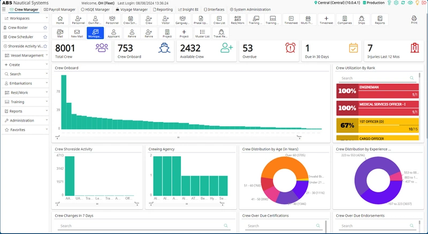EPA Report Highlights Benefits of Emissions Reduction Program
More than 50,000 older diesel powered engines were upgraded or replaced between 2008 to 2010 because of Diesel Emission Reduction Act (DERA) funding which resulted in major clean air benefits and fuel savings, according a new report issued today - the “Second Report to Congress: Highlights of the Diesel Emissions Reduction Program” by the U.S. Environmental Protection Agency.
“The results outlined in this report demonstrate that the clean diesel retrofit program (DERA) is one the nation’s rarest and best examples of a program that actually works, delivering big and real benefits in fuel savings and cleaner air to all 50 states, said Allen Schaeffer, the Executive Director of the Diesel Technology Forum.
More than 203,000 tons of NOx, 12,500 tons of particulate matter (PM) and 2.3 million tons of CO2 was reduced, while 63 million gallons of fuel was saved due to DERA projects funded through fiscal years 2008 through 2010, according to the April 2013 EPA report.
“DERA has proven consistently that relatively small public investments can be leveraged with significant private sector matching funds that together result in major cost-effective emissions reductions and fuel savings,” Schaeffer said. “According to the report, every $1 in public funds appropriated through the DERA program is leveraged with an additional $3 in non-federal funds including significant private sector investments that result in $7 to $18 in benefits to the public.”
Despite Success, DERA’s Future Remains Uncertain
“Despite these tremendous accomplishments, future federal funding for the DERA program remains uncertain,” Schaeffer said. “State and local clean air regulators have relied on DERA funding as a key tool to help move communities toward compliance as new and more stringent clean air requirements for Ozone and PM are set to take effect.”
Schaeffer highlighted some significant features of the report:DERA received almost $470 million through annual appropriations and “American Recovery and Reinvestment Act” (ARRA) funds between 2008 and 2010;
•More than 52,000 pieces of older diesel powered equipment across all regions of the country and in various applications were retrofitted, repowered or replaced;
•Popularity for the program was extremely high with requests exceeding available funding by a 7 to 1 ratio;
•School buses and long haul trucks accounted for approximately 78 percent of the projects for a total of just under 40,000 pieces of equipment;
•Construction and agricultural equipment, refuse haulers, delivery trucks and transit buses were also represented in the projects that received funding;
•The DERA program also helped develop financing tools to leverage private sector funds and bring to market innovative new clean air and fuel savings technologies.
EPA Estimates 11 Million Older Engines Still In Use
While diesel retrofit funding provided from 2008 through 2010 is expected to have an enormous impact on clean air, EPA estimates that about 11 million older engines are still in use around the country.
“The DERA program can greatly improve air quality in regions surrounding ports and other goods movement centers,” Schaeffer said. “The DERA program to date has had enormous success in retrofitting older school buses and long haul trucks. These accomplishments can be easily translated into equipment used in the goods movement industry including marine workboats, warehouse equipment and gantry cranes.”
Clean Diesel Technology Can Reduce Black Carbon Emissions to Near Zero Levels
“EPA and other clean air agencies have found that black carbon emissions from a variety of sources have a short-term warming effect on the climate. New technology diesel engines used in all types of on and off-road equipment-- some of which use particulate filters and catalysts -- have reduced particulate matter to near zero levels. Diesel retrofit projects can reduce emissions of particulate matter and in turn black carbon or soot,” Schaeffer said.
“In addition, in many applications, older engines may be modernized and upgraded with filters and other retrofit devices to virtually eliminate soot and/or be repowered with a new engine. The EPA report highlights that between 2008 and 2010, the DERA program helped replace, repower or retrofit almost 44,000 older engines and is expected to help reduce black carbon emissions,” Schaeffer said.
Regional Clean Diesel Collaboratives Include All 50 States
Since its creation in 2005, DERA has been supported by a bipartisan coalition of several hundred environmental and public health organizations, industry representatives, and state and local government associations including the American Lung Association, Natural Resources Defense Council, Environmental Defense Fund, Union of Concerned Scientists and National School Transportation Association. Together these groups continue to work together in educating Congress about these benefits and the importance of continued funding for the program.
“Thanks to DERA, not only have vehicles’ emissions been reduced, but awareness about the advantages of clean diesel technology has grown exponentially,” said Schaeffer. “Regional clean diesel collaboratives have been created throughout the country, bringing together vehicle and equipment owners, state and local governments and environmental advocates. As a result, today all 50 states now have some form of clean diesel retrofit program, with many of them also providing their own matching funds.”













